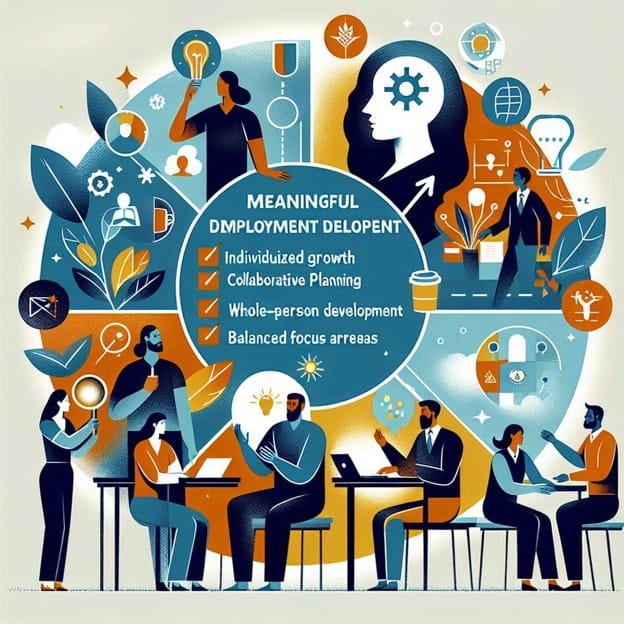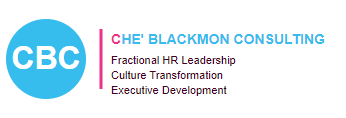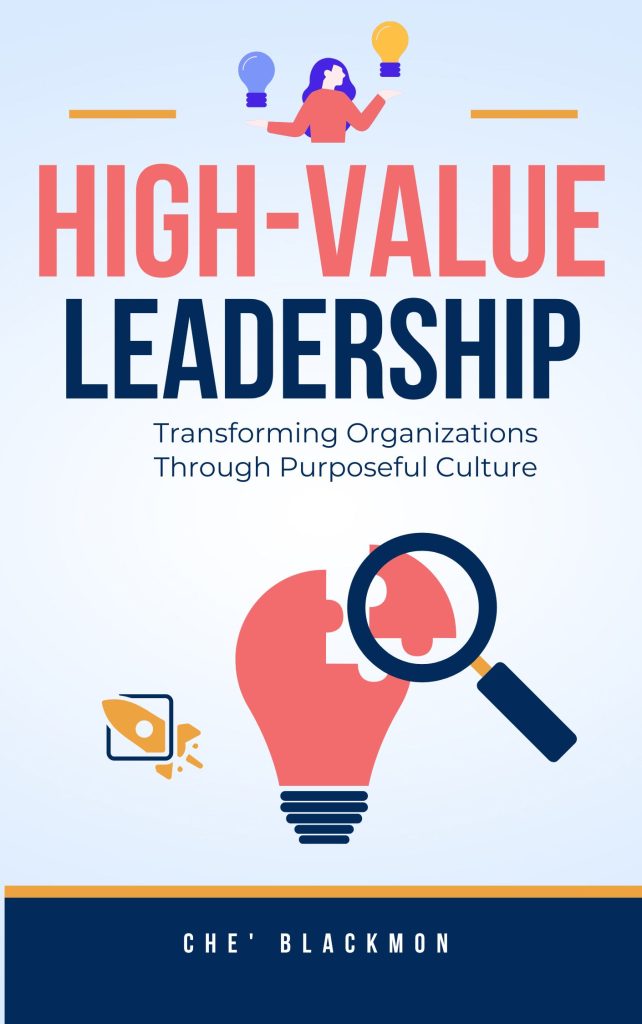In today’s competitive business landscape, organizations that prioritize employee development gain a significant edge. Meaningful development plans don’t just build skills—they create engagement, foster loyalty, and drive organizational performance. When properly aligned with both individual aspirations and company objectives, these plans become powerful tools for cultural transformation.
Why Development Plans Matter More Than Ever
The landscape of employee development has shifted dramatically. According to Gallup, 87% of millennials rate “professional or career growth and development opportunities” as important in their job. Yet only 29% of employees are satisfied with their organization’s career advancement opportunities. This disconnect represents both a challenge and an opportunity for forward-thinking leaders.
As I explore in “Mastering a High-Value Company Culture,” development planning sits at the intersection of organizational needs and individual fulfillment. When employees see a clear path for growth within your organization, they invest more deeply in their work and your mission. Their development becomes a shared journey rather than a transactional arrangement.
Beyond the Annual Review: Reimagining Development Planning
Traditional development plans often fall short because they’re treated as administrative requirements rather than strategic investments. A high-value approach transforms this process into several key ways:
1. From Standardized to Individualized
Every employee brings unique strengths, aspirations, and potential contributions. Effective development plans recognize this diversity:
- Strengths-based focus: Build plans around expanding what employees already do well
- Personal growth objectives: Connect development to what truly motivates each individual
- Customized learning pathways: Create flexible approaches that accommodate different learning styles and preferences
2. From Manager-driven to Collaborative
Employees who co-create their development plans show dramatically higher levels of engagement:
- Shared ownership: Involve employees in every stage of planning and implementation
- Regular dialogue: Replace annual discussions with ongoing conversations
- Multi-directional input: Gather feedback from peers, customers, and cross-functional partners
3. From Skills-only to Whole-person Development
High-value organizations recognize that growth extends beyond technical capabilities:
- Leadership development at all levels: Build leadership capabilities regardless of formal position
- Cultural competencies: Develop the behaviors that align with organizational values
- Life integration skills: Support well-being and sustainable performance
Case Study: Transformation at MidwestTech
MidwestTech, a 500-employee manufacturing company, struggled with high turnover among their most promising talent. Exit interviews consistently revealed the same issue: limited growth opportunities. Their traditional approach to development—annual reviews with standardized training plans—wasn’t meeting employee expectations or business needs.
Working with leadership, we implemented a comprehensive development framework that:
- Aligned individual development with strategic priorities: Each department identified critical capabilities needed for future success
- Created growth paths beyond traditional promotion: Established technical expert tracks alongside management tracks
- Implemented quarterly development conversations: Trained managers to facilitate regular, meaningful discussions about growth
- Established learning cohorts: Connected employees with similar development goals across departments
- Measured and recognized development progress: Celebrated growth milestones alongside performance achievements
The results were remarkable. Within 18 months, voluntary turnover decreased by 37%, internal mobility increased by 42%, and employee engagement scores related to growth and development improved by 28 percentage points. Most importantly, managers reported higher team performance and innovation as employees applied their newly developed skills.

The Five Elements of Meaningful Development Plans
In “High-Value Leadership: Transforming Organizations Through Purposeful Culture,” I outline five essential components that transform ordinary development plans into powerful growth engines:
1. Clear Connection to Purpose
Development becomes meaningful when employees understand how their growth contributes to something larger:
- Explicitly connect development goals to organizational mission
- Help employees articulate their personal purpose and values
- Create opportunities to see the impact of newly developed capabilities
2. Balanced Focus Areas
Comprehensive development plans address multiple dimensions:
- Technical expertise: Role-specific skills and knowledge
- Leadership capabilities: Influence, decision-making, and people development
- Cultural embodiment: Living and promoting organizational values
- Personal effectiveness: Time management, resilience, and work-life integration
3. Achievable Stretch Goals
Effective development plans balance challenge with attainability:
- Set goals in the “learning zone”—beyond comfort but short of overwhelming
- Break larger development objectives into manageable milestones
- Establish clear metrics for measuring progress
4. Diverse Learning Approaches
People learn differently, and development plans should reflect this diversity:
- Experiential learning: Projects, stretch assignments, and rotations (70%)
- Social learning: Mentoring, coaching, and peer collaboration (20%)
- Formal learning: Training, education, and structured programs (10%)
This 70-20-10 model ensures that development extends beyond classroom training into real-world application.
5. Accountability and Support Systems
Development plans thrive with the right infrastructure:
- Regular progress check-ins with managers and mentors
- Resources allocated specifically for development activities
- Recognition and celebration of growth milestones
- Feedback mechanisms to refine approaches
Implementing Different Contexts
The core principles of meaningful development planning apply across organizations, but implementation should be tailored to your specific context:
For Small Businesses:
- Leverage cross-training to build versatility
- Create mentoring partnerships with other small businesses
- Use industry associations and online learning platforms for specialized development
For Remote/Hybrid Teams:
- Schedule consistent virtual development conversations
- Create digital learning communities
- Use technology to make development activities visible
- Ensure equal access to growth opportunities regardless of location
For Highly Regulated Industries:
- Balance compliance requirements with creative development
- Create development paths that build both technical expertise and innovation skills
- Use scenario planning to prepare for regulatory evolution
Measuring Development Plan Effectiveness
How do you know if your development planning approach is working? Look beyond completion metrics to measure real impact:
- Application rates: How often are new skills being applied?
- Internal mobility: Are employees moving into new roles that leverage their development?
- Innovation metrics: Has development led to new ideas and approaches?
- Engagement scores: Are employees more connected to their work and the organization?
- Leadership pipeline strength: Are you developing future leaders at all levels?
- Knowledge sharing: Is learning spreading throughout the organization?
These metrics provide a more comprehensive view of development effectiveness than traditional measures like training hours or completion rates.
Overcoming Common Obstacles
Even with the best intentions, organizations often encounter challenges in implementing meaningful development plans:
Time Constraints
Solution: Integrate development into everyday work rather than treating it as a separate activity. Look for projects that accomplish business goals while building new capabilities.
Manager Capability Gaps
Solution: Provide managers with development planning toolkits, conversation guides, and coaching in how to support growth effectively.
Budget Limitations
Solution: Emphasize no cost or low-cost development approaches like stretch assignments, peer learning groups, and internal mentoring.
Lack of Visible Opportunities
Solution: Create transparency around future organizational needs and potential growth paths, even when traditional promotions are limited.
Taking Action: Next Steps for Leaders
To enhance your organization’s approach to employee development:
- Audit your current process: How effective are your current development planning practices? What’s working and what’s not?
- Build manager capability: Equip your leaders with the skills to facilitate meaningful development conversations.
- Create development resources: Compile growth opportunities, learning resources, and potential development paths.
- Align systems and culture: Ensure that your performance management, recognition, and promotion practices support development.
- Start small but meaningful: Implement improvements with a pilot group before scaling across the organization.
Questions for Reflection
- How well do your current development plans connect to both individual aspirations and organizational needs?
- What percentage of development in your organization happens through experience, relationships, and formal training?
- How effectively do your managers facilitate meaningful development conversations?
- What signals do employees receive about the value of development in your culture?
- How might you need to evolve your approach to development planning for different generations, work arrangements, or career stages?
Ready to transform your approach to employee development?
At Che’ Blackmon Consulting, we specialize in creating development frameworks that align with your organizational culture while unleashing individual potential. Our proven methodology helps create meaningful growth experiences that drive engagement, retention, and performance.
Contact us today at admin@cheblackmon.com or 888.369.7243 to schedule a consultation and discover how strategic development planning can unlock, empower, and transform your organization.
#EmployeeDevelopment #TalentRetention #LeadershipDevelopment #CareerGrowth #ProfessionalDevelopment #EmployeeEngagement #WorkplaceCulture #TalentManagement


